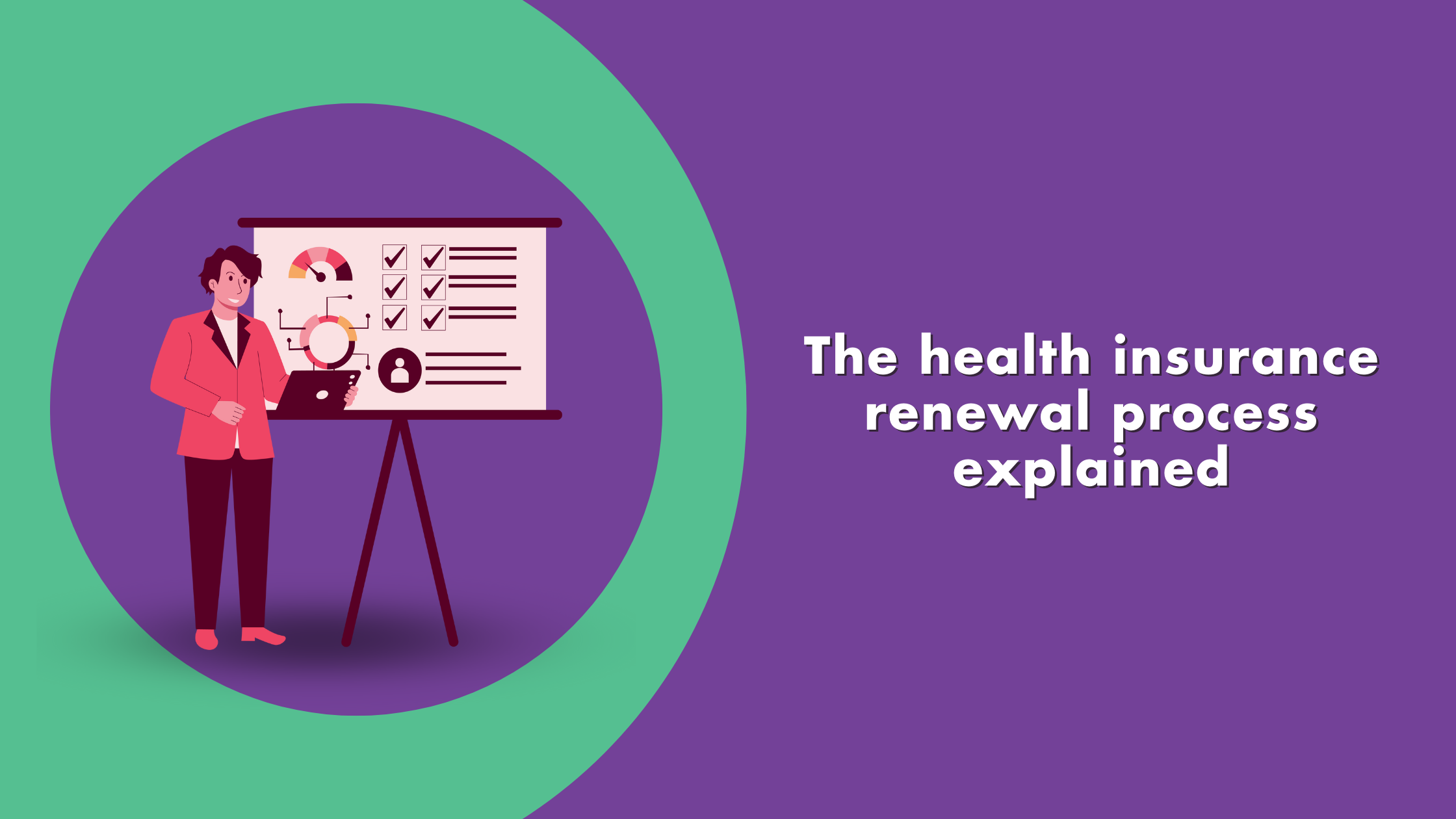Group Health Insurance is all well and good for health conditions which arise after the policy begins – assuming those conditions are included in the plan, of course! But, what about those ongoing or pre-existing medical conditions? Can they be covered too?
The answer to that question depends on the underwriting terms you have in place. A variety of options are available for Group Health Insurance underwriting and we’re going to take you through all of them in this no-nonsense explainer.
You might be surprised by the possibilities!
Need FREE and independent advice on how to set up the perfect Group Health Insurance scheme for your business? Contact our award-winning brokers on 01273 222805 or click on the bottom right chat box.
The basic principles of Medical Underwriting
What does Medical Underwriting mean?
Medical Underwriting is a term used to describe the process of using health and medical information to evaluate an application for private health insurance. Based on this information, the insurer will decide whether to accept an application and, if they do, calculate the premium rates and any coverage limits.
What happens to pre-existing conditions?
“Pre-existing conditions, and ailments related to it, are often excluded from your employees’s policy because health insurance is designed to treat new conditions that occur after their cover has started.”
Pre-existing health conditions are those health issues which exist prior to taking out a health insurance policy. An insurer might want to know about previous symptoms, medications, treatments or diagnostic tests for a disease, illness or injury prior to taking out a health insurance policy.
Because health cover is usually designed for new and unexpected medical conditions, it’s essential that insurers know of any pre-existing ones.
How much health information will my employees need to share?
This ultimately depends on what form of Group Health Insurance underwriting you choose (you’ll learn more about that in the following section). If you have Medical History Disregarded there’s very little your employees will need to reveal. On the other hand, if you select Full Medical Underwriting, you will have to supply the following information:
- Previous and current medical history: This includes treatment dates, medications, frequency of symptoms, any ongoing consultations and diagnostic tests.
- Weight and height: A high BMI will sometimes raise alarm bells for insurers.
- Inherited conditions and family medical history: Such conditions may be excluded by the insurer if it’s included a high enough risk.
- Lifestyle habits: High levels of alcohol consumption and regular heavy smoking can increase your risk profile.
- Perilous hobbies: Skydivers and rock climbers, for example, may have certain injuries excluded or warrant a higher premium.
- Occupation: Some jobs bring with them a higher risk of certain injuries and illnesses.
Further reading: Which small business health insurance option is right for you?
The 5 types of Medical Underwriting
Thankfully, businesses have a few options when it comes to Group Health Insurance underwriting. Five in fact. Each one offers different options on which health conditions (pre-existing or new) are covered under a policy.
#1 Moratorium Underwriting
Moratorium Underwriting is one of the most common methods of underwriting. You can forget about completing a health questionnaire or declaring a full medical history upfront, making the application process quick and mostly automatic.
However, if one of your employees need to make a claim, the insurer will need to pry into their medical history to discover whether it’s a new or pre-existing medical issue. Any treatment or medical conditions experienced by employees in the five years prior to joining the policy will not be covered immediately on the scheme.
But, here’s the good bit! After a continuous two-year ‘trouble-free’ period (if the member goes two years into the policy without any requiring any treatment or experiencing any symptoms of the prior condition), those conditions can be covered again!
#2 Full Medical Underwriting
Full Medical Underwriting usually requires a full breakdown of an employee’s entire medical history to the insurer, who will then produce a list of exclusions based on the disclosed medical history. This is usually done through a health questionnaire or a GP report at the very beginning of the application process.
This type of underwriting is unique to each insurer, and might not always lead to exclusions. A huge benefit of going for Full Medical is that, from day one, staff and businesses know exactly what will and won’t be covered. This gives a sense of certainty and clear understanding of your health insurance policy, and also the opportunity to discontinue the cover if you disagree with the decided-upon exclusions.
While harder to set up, it may end up costing less than Moratorium Underwriting.
Need a friendly broker to talk you through it? Contact one of our experts to find out which option is likely to work best for your business. Contact us at hello@hoorayinsurance.co.uk or call 01273 222805 for FREE no-obligation advice.
#3 Medical History Disregarded
It’s exactly how it sounds. An insurer takes zero interest in your employees medical past in this form of underwriting. In other words, there are no exclusions based on past medical history of pre-existing conditions. Yes, you read that right – all pre-existing and new conditions are covered on your policy!
However, this is only typically available on Group Health Insurance schemes covering a minimum group of 15 employees and comes with a significantly increased premium. Despite this, it can be a fantastic option for those larger corporations looking for extensive cover.
#4 Continued Personal Medical Exclusions
CPME is an underwriting policy is designed for businesses with fully underwritten health insurance policies who want to change insurer yet continue with the same underwriting terms. This is often used by businesses who’ve had a nasty price hike at renewal and are seeking a better price with another insurer.
Why is this a good thing? Firstly, it avoids a lot of the hassle that comes with setting up from scratch. But secondly, medical conditions which were treated on the previous incarnation of the policy can continue to be treated rather than re-categorised as a pre-existing health problem.
However, each insurer has their own eligibility criteria that must be met. If you don’t meet their switch requirements, new exclusions could potentially be added to your policy.
As always, the devil’s in the detail.
#5 Continued/Switch Moratorium
Continued/Switch Moratorium Underwriting (CMORI) is another form of Group Health Insurance underwriting which applies to businesses with a pre-existing policy. This time it’s available to companies switching health insurance originally underwritten on Moratorium terms. It allows businesses to carry over their existing medical underwriting to a new insurer, covering the same conditions as before.
It’s essential to dig around first and discover whether the provider applies their own moratorium terms or if they are willing to maintain those of your existing insurer before you make the switch. After all, if the ‘two-year trouble-free’ clause has been met with your previous insurer, you can keep those moratorium terms under a CMORI.
Here’s an example to illustrate the point:
Sarah from accounts had treatment for back pain prior to the previous policy and has gone through the ‘two-year trouble-free’ period without any reoccurrences or need for treatment. By transferring the policy, she continues to qualify for treatment if she requires therapy thereafter.
Need help finding the right health insurance and employee benefits?
The employee benefits and health insurance world is no easy industry to work your way through. Even having a general understanding of some of the key concepts and definitions goes a long way in helping you make the right decisions when it comes to health insurance and finding protection for your staff.
Getting extra help from an independent health insurance and benefits broker, like our team here at Hooray, can also keep you on the right track towards finding the best insurers and policies to fit with your business.
We offer FREE advice to start-ups and SMEs looking to launch their first employee benefits or review any current policies they have in place. We help you get things started by learning more about your business and talking you through the various options that are at your disposal.
Contact us at hello@hoorayinsurance.co.uk or call 01273 222805 for FREE no-obligation advice and support.
Author

Author: Eleanor Chilvers








![_HPA24 Advice Firm of the Year [YELLOW] _HPA24 Advice Firm of the Year [YELLOW]](https://hoorayinsurance.co.uk/wp-content/uploads/elementor/thumbs/HPA24-Advice-Firm-of-the-Year-YELLOW-qwfw5zs3ef19fjq6cnwf697rj9gwqbf8o6443qptg0.png)
![_HPA24 Best Small Health Insurance Advice Firm [YELLOW] _HPA24 Best Small Health Insurance Advice Firm [YELLOW]](https://hoorayinsurance.co.uk/wp-content/uploads/elementor/thumbs/HPA24-Best-Small-Health-Insurance-Advice-Firm-YELLOW-qwfw5yu97kzz3xrji5hslrgaxvljimbic1gmmgr7m8.png)
![_HPA24 Best Sales & Retention Advice Team [YELLOW] _HPA24 Best Sales & Retention Advice Team [YELLOW]](https://hoorayinsurance.co.uk/wp-content/uploads/elementor/thumbs/HPA24-Best-Sales-Retention-Advice-Team-YELLOW-qwfw5yu97kzz3xrji5hslrgaxvljimbic1gmmgr7m8.png)
![_HPA24 Best Small Protection Advice Firm [YELLOW] _HPA24 Best Small Protection Advice Firm [YELLOW]](https://hoorayinsurance.co.uk/wp-content/uploads/elementor/thumbs/HPA24-Best-Small-Protection-Advice-Firm-YELLOW-qwfw5zs3ef19fjq6cnwf697rj9gwqbf8o6443qptg0.png)